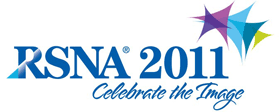
Abstract Archives of the RSNA, 2011
LL-BRS-SU6B
Screening Ultrasound-detected BI-RADS Category 3 Lesions of Breasts
Scientific Informal (Poster) Presentations
Presented on November 27, 2011
Presented as part of LL-BRS-SU: Breast Imaging
Sangyu Nam MD, Presenter: Nothing to Disclose
Eun Young Ko MD, PhD, Abstract Co-Author: Nothing to Disclose
Boo-Kyung Han MD, PhD, Abstract Co-Author: Nothing to Disclose
Jung Hee Shin MD, Abstract Co-Author: Nothing to Disclose
Eun Sook Ko MD, Abstract Co-Author: Nothing to Disclose
The aim of this study was to assess the outcome of ultrasound (US) BI-RADS category 3 lesions which were detected on screening breast US, and to suggest appropriate management.
From January 2006 to December 2006, 2306 women underwent breast US as a supplemental screening test to the screening mammography. We retrospectively reviewed ultrasound images of 1666 patients with negative screening mammography or screening US only, and 689 women (41.4%) had US BI-RADS category 3 lesions. We enrolled 653 patients who had BI-RADS 3 lesions on screening US and had follow up US images for at least 24 months in this study. We reviewed clinical records and follow up mammography and US images to assess the outcome of screening US-detected BI-RADS category 3 lesions.
Four women (0.61%) with US-detected category 3 lesions showed suspicious interval change of morphology or significant increase in size of the lesions and categorized as BI-RADS category 4 during the follow up period. Only one lesion was confirmed as invasive ductal carcinoma at 21months follow up. The other 3 lesions were intraductal papilloma (n=1) and fibroadenomas (n=2). Cancer rate of the US-detected BI-RADS category 3 lesions was 0.15%.
Cancer rate of category 3 lesions which were detected on screening US only was very low, and short-term follow up US examination is not recommended.
Category 3 lesions which were detected on screening US don't need short-term follow up US, the decrease in the number of imaging studies save cost and give convenience to the patient.
Nam, S,
Ko, E,
Han, B,
Shin, J,
Ko, E,
Screening Ultrasound-detected BI-RADS Category 3 Lesions of Breasts. Radiological Society of North America 2011 Scientific Assembly and Annual Meeting, November 26 - December 2, 2011 ,Chicago IL.
http://archive.rsna.org/2011/11034452.html

